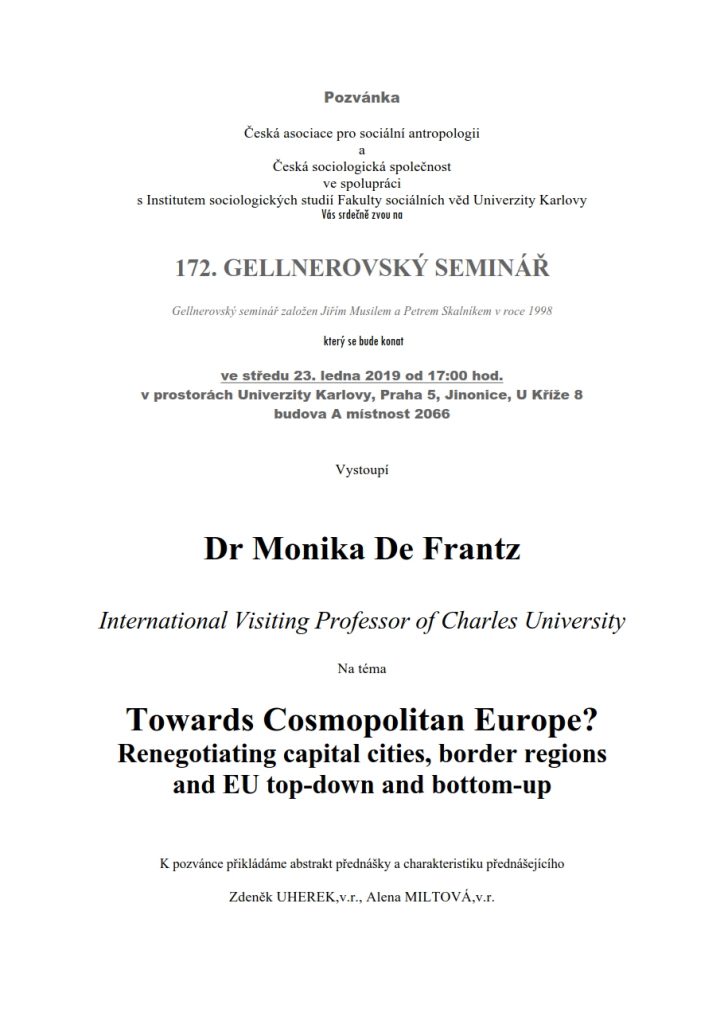
Abstract
Given the multiple institutional crises and rising political extremism in contemporary Europe, the social processes constituting European transformations in different local and transnational contexts gain importance for the democratic future of the continent. In addition to political and economic incentives, the EU promotes various transnational notions such as the ‚Europe of the Regions‘, the ‚Danube macroregion‘ or the ‚EU Urban Agenda‘ as normative frames to mobilise support for European policies. In response to diverse global and European transformation challenges, cultural heritage offers a local resource for collective mobilisation of social and political actors for the development of cities and regions. However, as diverse claims for justice and belonging open different associations with nation, minorities, ethnicity, community and territoriality in Europe, the strategic development of the local capital for culture-led regeneration can raise deep political contention. At the centres and the margins of European states, capital cities and border regions offer emblematic cases to enquire into the diverse mobilisations embedding transnational changes in specific local contexts. Thus, the controversial emergence of the ‚Museumsquartier Vienna‘ and the ‚Humboldt Forum‘ in Berlin – two most symbolic cultural projects of urban repositioning in the new Europe since the 1990s – showed urban culture a diverse and contested source of transformation. Also the politics of national minorities following the opening of Austria’s borders with the Eastern neighbours highlighted the complex cultural and territorial mobilisations renegotiating the regional transformations in Central Europe. Here in Prague, tourism development and new urban movements invite further discussion about the role and meanings of cultural heritage in political and economic transformations. Researching these various top-down and bottom-up interactions through a comparative interpretative-institutional approach, I conceive Europe as a diverse and open-ended multi-level process where different instances of cosmopolitan politics reconstruct shared legitimacies in the social contexts.
Short Bio
Monika De Frantz is currently International Visiting Professor in Urban Geography at the Charles University Prague. With a PhD in Social and Political Sciences from the European University Institute EUI Florence, she previously taught at the University of Chicago, University of New Orleans, London School of Economics, Bauhaus-University Weimar, University of Vienna and Innsbruck. Her book ‘Capital City Cultures’ narrates European state-transformation from the perspective of culture-led urban development in Vienna and Berlin. Her current research is dedicated to the next monographic book on theories of urban politics in globalisation, as well as to empirical work on the new EU Urban Agenda and on urban development in Prague.